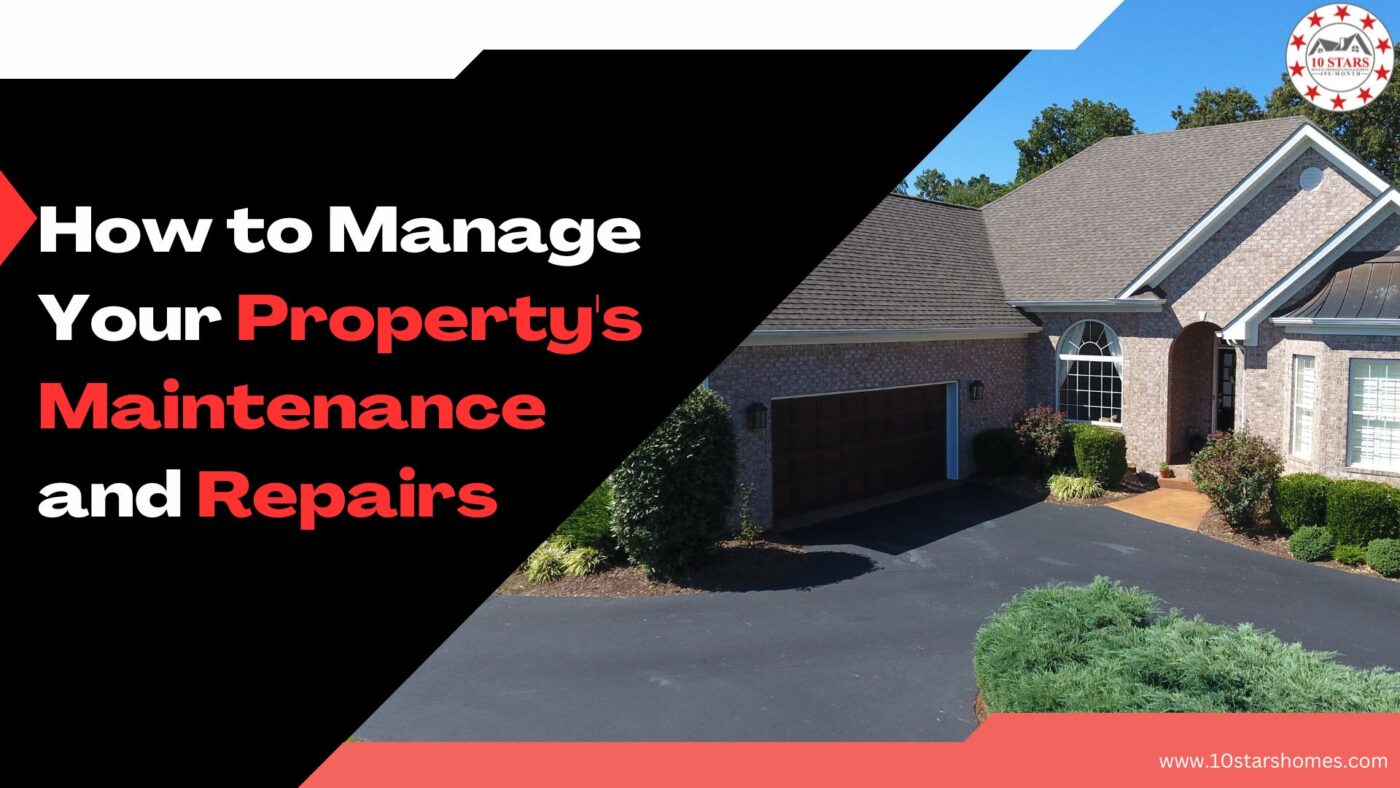Owning a property comes with the responsibility of ensuring its maintenance and repairs are handled effectively. Whether you own a residential home, commercial building, or rental property, proper maintenance is crucial for preserving its value, ensuring the safety of occupants, and avoiding costly repairs down the line. In this comprehensive guide, we will explore essential steps and strategies to help you manage your property’s maintenance and repairs efficiently.
-
Conduct Regular Inspections
The first step in managing property maintenance is to conduct regular inspections. Regular inspections allow you to identify potential issues early on and take proactive measures to prevent them from escalating. Create a checklist to ensure you cover all essential areas, including structural elements, plumbing systems, electrical wiring, HVAC systems, and common areas.
-
Develop a Maintenance Plan
A well-designed maintenance plan is essential for effective property management. Outline a schedule for routine maintenance tasks such as cleaning, landscaping, and servicing equipment. Additionally, establish a preventive maintenance schedule to address issues before they become major problems. Keep detailed records of all maintenance activities, including dates, costs, and repairs undertaken.
-
Prioritize Safety
Safety should be a top priority when managing property maintenance. Regularly inspect and maintain safety features such as fire alarms, carbon monoxide detectors, and emergency exits. Ensure that stairways, handrails, and walkways are well-lit and in good condition. Regularly check electrical systems for any potential hazards, and address them promptly.
-
Establish Relationships with Contractors
Developing relationships with reliable contractors is essential for timely and efficient repairs. Research and vet contractors in advance to ensure they are licensed, insured, and experienced in handling the specific repairs required for your property. Create a list of preferred contractors for different types of repairs, such as plumbers, electricians, HVAC technicians, and general maintenance professionals.
-
Implement a Maintenance Request System
To streamline communication with tenants or occupants, consider implementing a maintenance request system. This system can be a web portal, email, or phone line dedicated to reporting maintenance issues. Clearly communicate the process to tenants and establish response times based on the severity of the problem. Promptly address and document all maintenance requests to ensure accountability.
-
Budget for Maintenance and Repairs
Setting aside a budget for property maintenance and repairs is crucial. Evaluate your property’s needs and estimate potential costs for routine maintenance, as well as unexpected repairs. Consider creating a reserve fund specifically for major repairs or emergencies. Regularly review and adjust your budget to ensure it aligns with the current needs and condition of your property.
-
Stay Informed about Local Regulations
Being knowledgeable about local regulations is vital to managing property maintenance and repairs effectively. Familiarize yourself with building codes, zoning regulations, and safety standards applicable to your property. Stay updated with any changes or new requirements to ensure compliance and avoid penalties or legal issues.
-
Communicate with Tenants or Occupants
Open and effective communication with tenants or occupants is essential for property maintenance. Regularly update them about scheduled maintenance activities and provide clear instructions on reporting issues. Encourage tenants to report maintenance problems promptly to prevent minor issues from escalating into major repairs.
Conclusion
Managing your property’s maintenance and repairs is a crucial aspect of property ownership. By implementing the strategies outlined in this comprehensive guide, you can ensure the longevity, safety, and value of your property. Regular inspections, a well-designed maintenance plan, prioritizing safety, establishing relationships with contractors, implementing a maintenance request system, budgeting for maintenance and repairs, staying informed about local regulations, and maintaining open communication with tenants or occupants, you can effectively manage your property’s maintenance and repairs.

